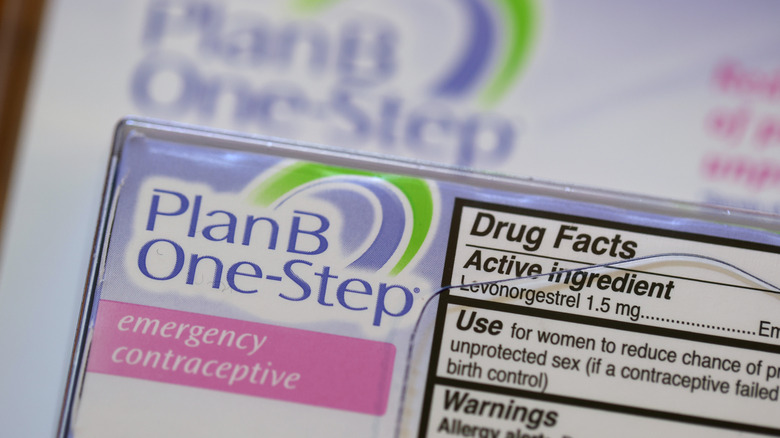Why The FDA Is Changing Plan B Label
Plan B One-Step, more commonly known as the morning-after pill, is used for emergency contraception — "a method of preventing pregnancy to be used after another contraceptive fails or after unprotected sex," as explained by the FDA. The Centers for Disease Control and Prevention (CDC) reports that almost 25% of all women who have had sex have used emergency contraception at some point.
Plan B was first approved in 1998, available only with a doctor's prescription, per the U.S. Office on Women's Health. In 2006, it was approved for purchase without a prescription for women over the age of 18. According to the FDA, in 2009, the original Plan B was discontinued. Then, in 2013, it was approved for over-the-counter purchase without age restrictions.
The drug has recently undergone a change in its packaging label. The change was requested by the makers of Plan B One-Step, with the United States Food and Drug Administration (FDA) reviewing the scientific evidence submitted, and approving the updated wording.
Plan B One-Step does not cause an abortion
The previous Plan B One-Step packaging included a claim that "the pill prevents a fertilized egg from implanting in the womb," according to NPR. With the issue of abortion rights being a hot topic in the political world today, the previous Plan B One-Step label caused some anti-abortion advocates and institutions to place it in the category of an abortion aid, and against the U.S. Supreme Court's decision to overturn constitutional abortion rights (via Scientific American).
This wording has been removed and replaced with how Plan B One-Step relates to abortion updated on the FDA's information page about the drug. Clarifying its usage in a question and answer segment that asks, "Is Plan B One-Step an abortifacient (causing abortion)?" The FDA responds, "Plan B One-Step will not work if a person is already pregnant, meaning it will not affect an existing pregnancy."
They further explain, "Evidence does not support that the drug affects implantation or maintenance of a pregnancy after implantation, therefore it does not terminate a pregnancy." To clarify, the FDA says that Plan B One-Step works by delaying or stopping the release of an egg before it can be fertilized. CNN reports the FDA will include the updated information in the leaflet included in the packaging of Plan B One-Step.

